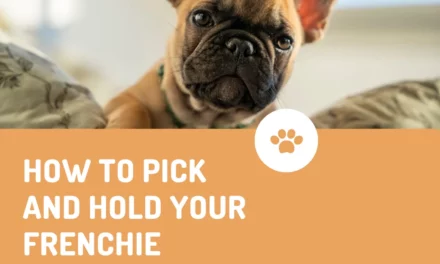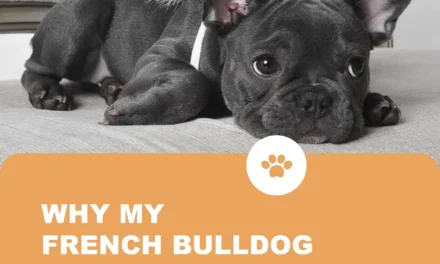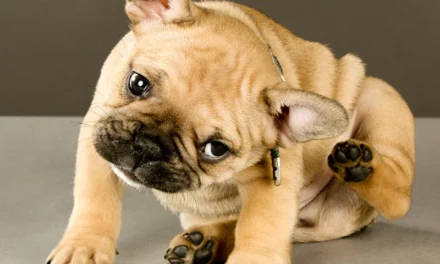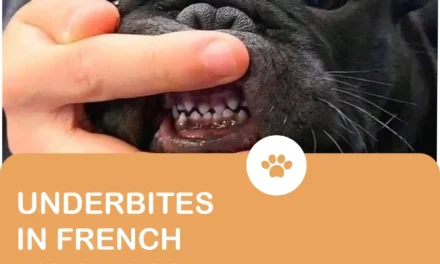Why is my French Bulldog drooling all of a sudden ?
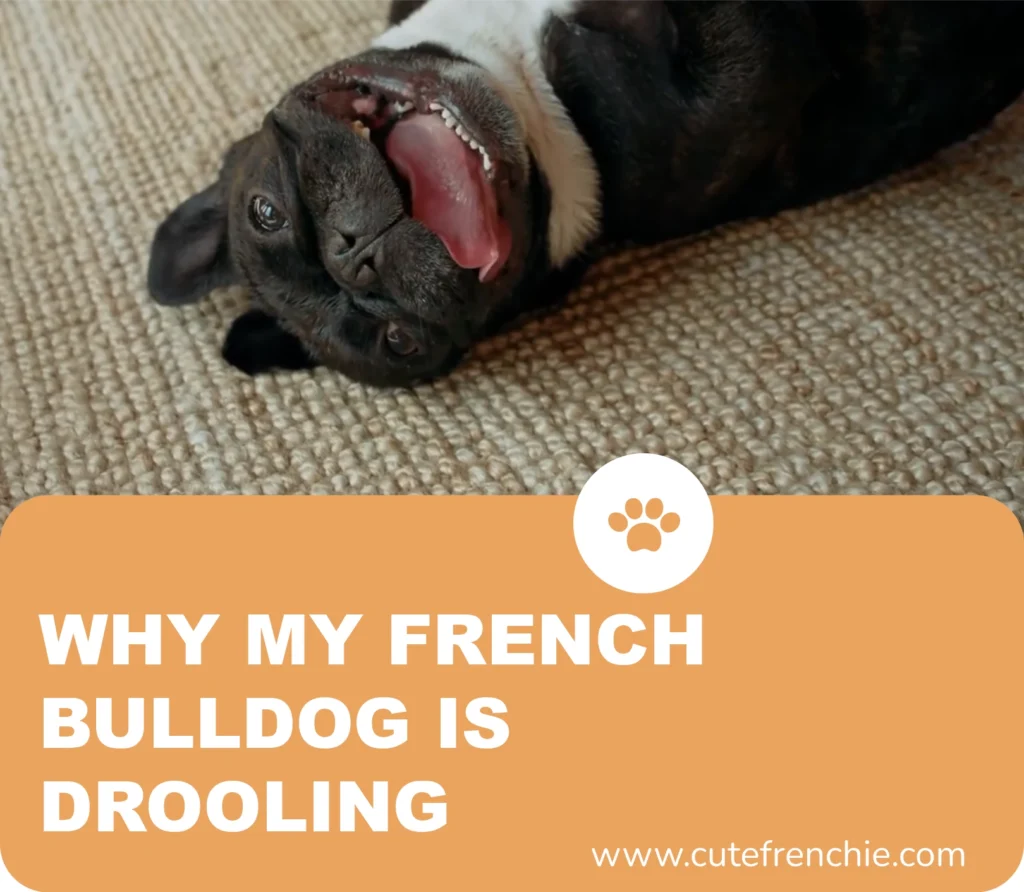
Have you noticed your French Bulldog unexpectedly drooling more than usual? Frenchies typically don’t drool excessively, but sudden excessive drooling could signal various issues.
Dental problems, heat sensitivity causing increased saliva, or dietary indiscretion might be causes.
Dental issues like infections or foreign objects, heat sensitivity leading to extra saliva production, or an upset stomach could trigger this sudden change
Throughout this article, we will explore these potential causes and unravel the mystery behind why your French Bulldog might suddenly be drooling more than usual, aiming to provide insights and possible solutions to alleviate this concern.

Potential causes include nausea, foreign objects in the mouth, mouth inflammations, gingivitis, severe dental issues, specific neurological problems, stomach ulcers, mouth injuries, ingestion of harmful substances, insect stings, liver, pancreatic, and kidney problems.
Unraveling the Mystery: Understanding French Bulldog Drooling
Why is my French Bulldog suddenly drooling?
If you’ve noticed an abrupt increase in drooling from your French Bulldog, it might cause concern initially.
However, it’s essential to understand that this sudden onset of drooling is a common trait among Frenchies and isn’t necessarily a cause for alarm.
French Bulldogs, with their adorable wrinkled faces and affectionate personalities, are notorious for their tendency to drool, slobber, and dribble more frequently than some other breeds.
While it might not make them the most fastidious house guests, it’s a normal part of their behavior.
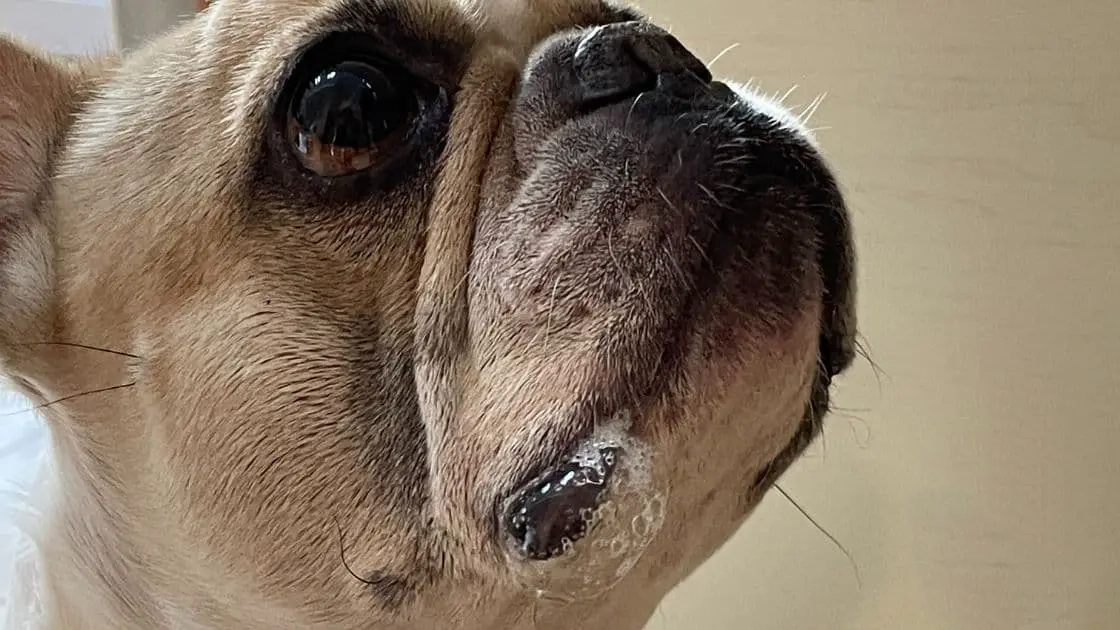
The act of drooling in dogs serves multiple purposes, predominantly linked to eating and digestion.
Saliva production aids in moistening the mouth, breaking down food during digestion, and plays a role in maintaining oral health by helping prevent tooth decay and gum disease.
So, if your French Bulldog suddenly appears to be drooling more, it’s often a natural response tied to their eating habits and overall oral health maintenance.
Why do French Bulldogs drool excessively?
Their brachycephalic features—short, wide snouts, overhanging lip folds, and occasional underbites—contribute to increased slobber production at times.
Let’s cut them some slack—given their physical construction, occasional drooling is a natural outcome!
However, there’s a distinction between normal and abnormal drooling. It’s crucial to be attentive, especially when drooling becomes excessive.
But what qualifies as excessive drooling?
If your dog excessively drools beyond activities like exercise, eating, or drinking, and this sudden, frequent, and persistent drooling continues outside of these usual situations, it warrants closer investigation
Why do French Bulldogs excessively drool?
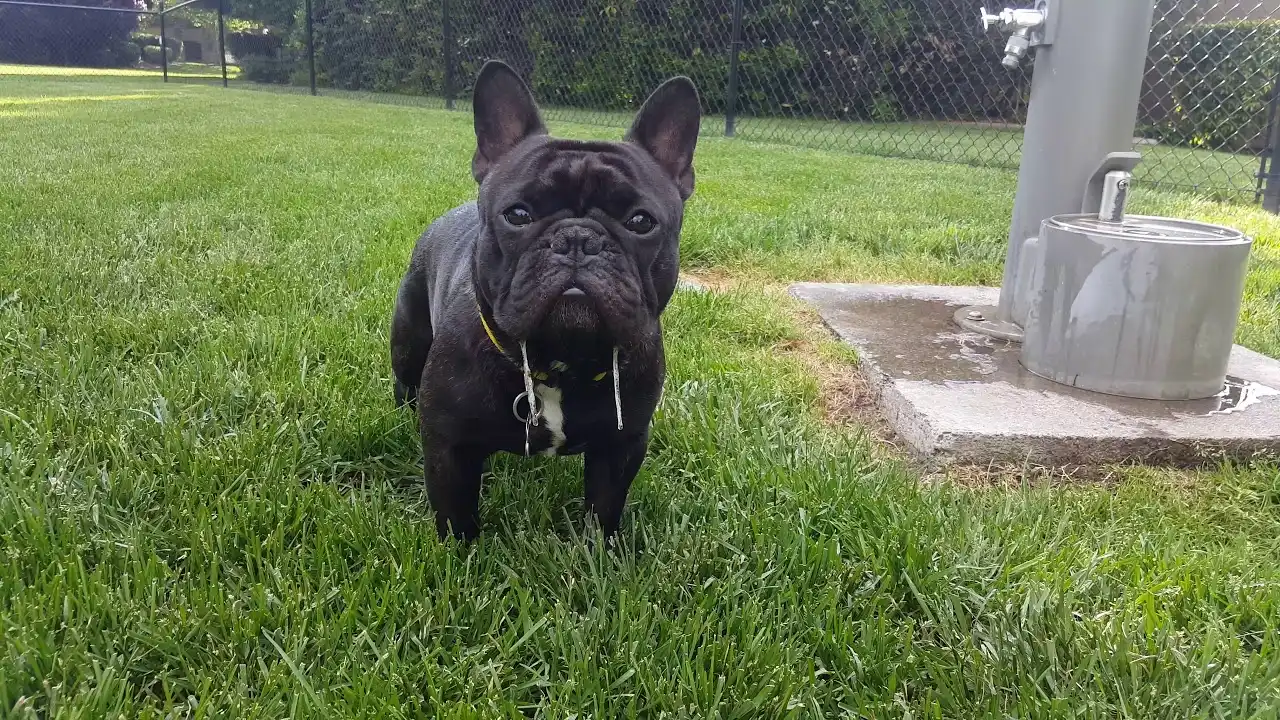
1. Over-exertion:
French Bulldogs might excessively drool after physical activities like walks or play sessions. This exertion induces heightened saliva production, leading to increased drooling. For instance, post-morning walks or vigorous play, Frenchies might exhibit prolonged drooling due to heightened exertion levels.
2. Excitement and food:
When excited or presented with food, French Bulldogs tend to drool excessively. The anticipation of a meal triggers a heightened salivary response, resulting in noticeable drooling. It’s common for Frenchies to display increased drooling when food is within sight or during mealtime.
3. Mouth disease and tooth decay:
Excessive drooling in French Bulldogs might indicate mouth-related issues like gum disease or tooth decay. Signs such as red/swollen gums, persistent bad breath, bleeding, or discomfort while eating could signify underlying dental problems leading to increased drooling.
4. Heat stroke:
Overheating in French Bulldogs, especially during hot weather or strenuous activities, can cause excessive drooling. It’s their natural way of attempting to regulate body temperature. Owners might notice increased drooling as their Frenchie’s response to combating overheating.
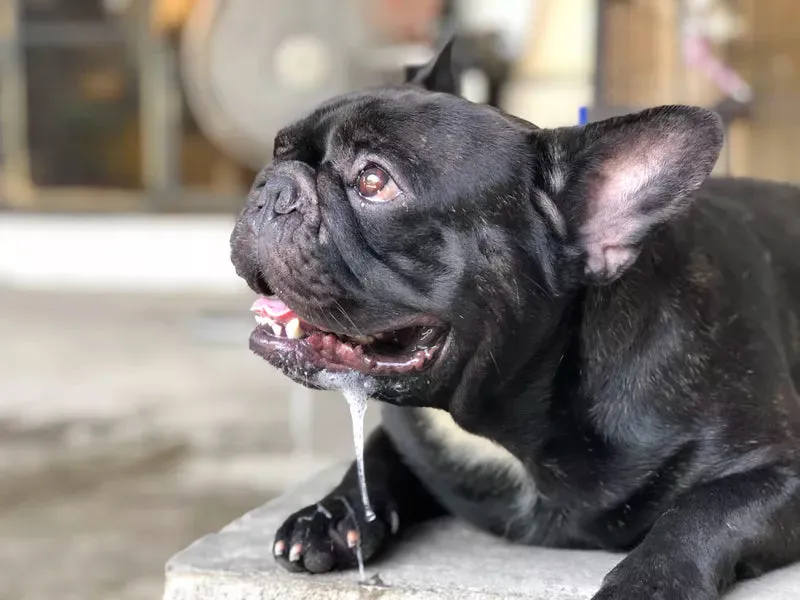
5. Motion sickness:
Some French Bulldogs experience drooling due to motion sickness, particularly during car rides. Puppies, in particular, might exhibit increased drooling when unfamiliar with traveling by vehicle. Methods such as having them sit forward or limiting food intake before journeys might help alleviate this issue.
6. Anxiety and stress:
Changes in the environment or exposure to loud noises can induce stress-related drooling in French Bulldogs. Stressful situations may cause excessive drooling, along with other behaviors such as loss of appetite, hiding, or trembling. Creating a calm and familiar environment can help reduce stress-induced drooling.
7. Poisoning:
Ingesting toxic substances can lead to increased drooling in French Bulldogs. It’s essential to keep harmful items like plants, cleaning products, and other toxins out of reach to prevent accidental ingestion, which could result in heightened drooling among other symptoms.
8. Mouth injuries:
Mouth injuries, including cuts or foreign objects stuck in the mouth or throat, might cause sudden and excessive drooling in French Bulldogs. Checking for injuries or obstructions and seeking prompt veterinary attention is crucial in such cases.
9. Rabies:
Though rare in many countries, rabies could be a concern if your French Bulldog shows signs such as fever, seizures, hydrophobia, or a change in bark tone along with excessive drooling. Immediate veterinary attention is necessary to rule out this highly unlikely but serious condition.
10. Organ disease:
Unexplained excessive drooling in French Bulldogs could be a potential indicator of severe health issues like kidney or liver problems. Regular health check-ups and seeking veterinary advice are essential if excessive drooling persists despite ruling out other potential causes.
Signs to Monitor for Possible Causes of Excessive Drooling
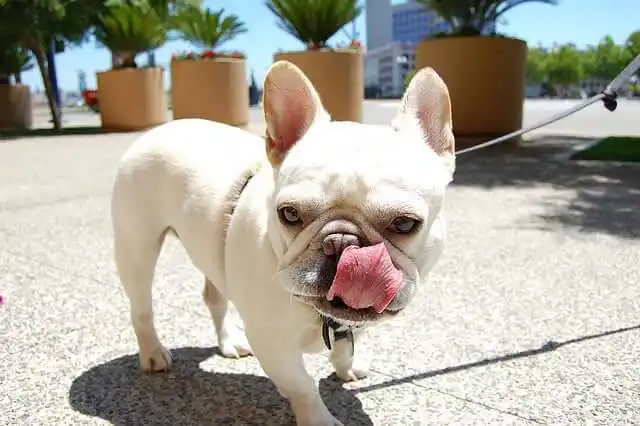
Aside from excessive drooling, keep an eye on various aspects of your French Bulldog’s routine and behavior as they could provide clues regarding the underlying reasons:
1. Behavioral Changes:
Observe any alterations in your Frenchie’s behavior. Unusual behaviors, such as increased restlessness, agitation, or lethargy, could accompany excessive drooling and might indicate discomfort or underlying health issues.
2. Dietary Changes:
Consider any recent modifications in your Frenchie’s diet. Changes in food or treats might trigger allergies, digestive problems, or discomfort, leading to increased drooling. Monitor if the drooling coincides with a new diet or specific food items.
3. Ingestion of Foreign Objects:
Reflect on the possibility of your Frenchie consuming something unusual while on a walk. Ingesting foreign objects or toxic substances during outdoor activities could result in excessive drooling and potential health complications.
4. Involvement in Altercations:
Has your Frenchie been involved in any altercation, especially with other dogs? Physical confrontations or injuries might cause pain, discomfort, or stress, leading to increased drooling.
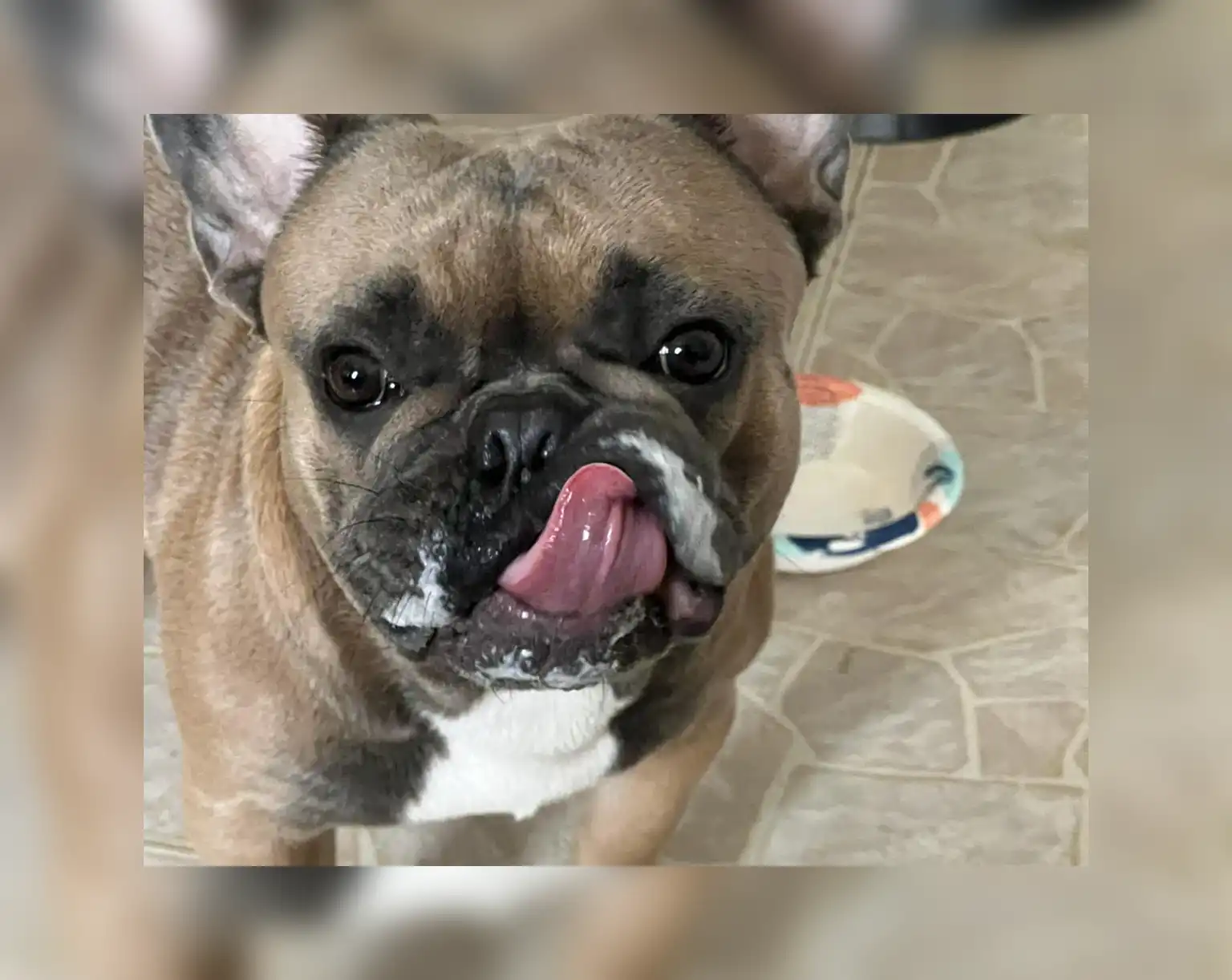
5. Over-exertion:
Consider if your French Bulldog has been overly active or exerted themselves excessively. Intense physical activities beyond their usual limits might cause discomfort or fatigue, resulting in increased drooling.
6. Dental Health:
Assess the condition of your Frenchie’s teeth. Dental issues like gum disease, tooth decay, or oral infections could trigger excessive drooling. Check for signs of red/swollen gums, bad breath, or reluctance to eat.
7. Environmental Changes:
Evaluate any recent changes in the household environment that might induce anxiety or stress in your Frenchie. Changes in routine, new family members, loud noises, or disruptions could lead to increased anxiety and subsequent drooling.
Regularly monitoring these aspects alongside excessive drooling can provide valuable insights into potential causes or triggers. Observing these details helps in better understanding your Frenchie’s health and behavior, facilitating timely intervention and care if needed.
Strategies to Address Excessive Drooling in French Bulldogs
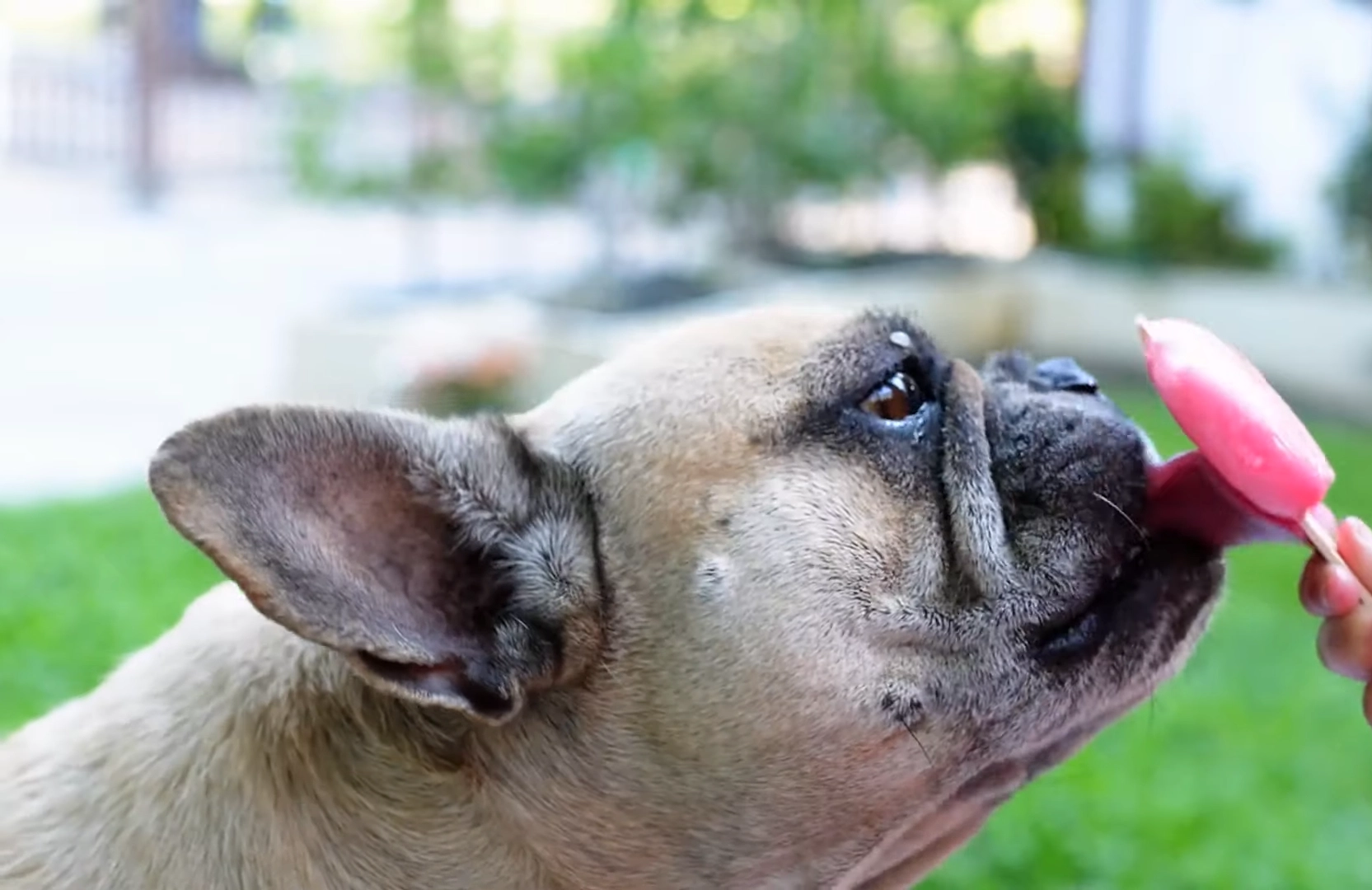
If your French Bulldog continues to excessively drool despite being healthy, there are some steps you can take to address the issue:
Assess Household Products:
Examine if alterations in cleaning agents, detergents, or shampoos might trigger excessive drooling in your Frenchie. Certain ingredients in new products could provoke sensitivity. Consider reverting to previous products or exploring alternative options to alleviate this issue.
Evaluate Stress Factors:
Identify if unusual stressors, such as changes in routines or the introduction of new family members, induce excessive drooling in your Frenchie. Resolving underlying psychological stressors and fostering a comforting environment can help regulate drooling behavior.
Positive Excitement Triggers:
Recognize how positive stress and excitement, like anticipation of favorite foods or new toys, might trigger temporary excessive drooling in your Frenchie. These situations often lead to natural drooling, which typically subsides once the stimulating event settles.
Dental Examination:
Prioritize a comprehensive dental check-up to address potential oral issues causing excessive drooling. Gum disease, tooth decay, or infections can contribute to discomfort. A veterinarian can identify and treat underlying dental problems.
Hydration and Diet:
Ensure your Frenchie remains well-hydrated and assess their diet’s role in increased saliva production. Dehydration or specific foods might be triggering excessive drooling. Providing fresh water regularly and reviewing dietary changes could potentially alleviate drooling.
Regular Exercise and Mental Stimulation:
Maintain a balanced exercise routine and provide mental stimulation for your Frenchie. Physical activity and mental engagement play a crucial role in reducing stress levels, regulating emotions, and potentially decreasing excessive drooling.
Allergies and Irritants:
Consider the potential impact of allergies or exposure to irritants triggering heightened drooling. Environmental factors, specific foods, or substances might induce allergic reactions, leading to excessive saliva production. Consult a vet to manage potential allergens.
Regular Veterinary Check-ups:
Schedule routine vet visits for comprehensive health assessments. Regular check-ups facilitate early detection and management of underlying health issues contributing to excessive drooling in your Frenchie
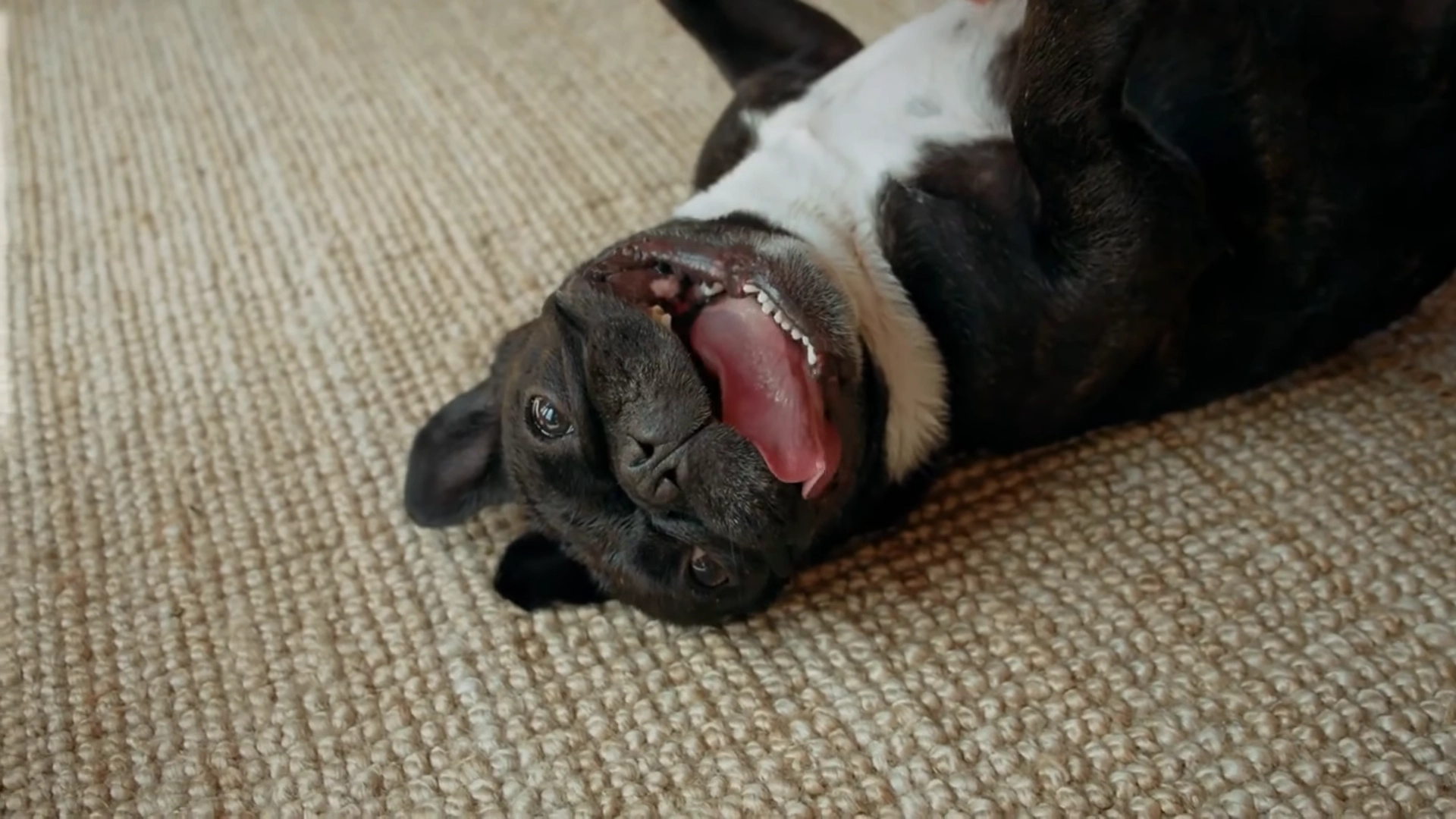
Understanding French Bulldog Drooling: Causes and Scenarios
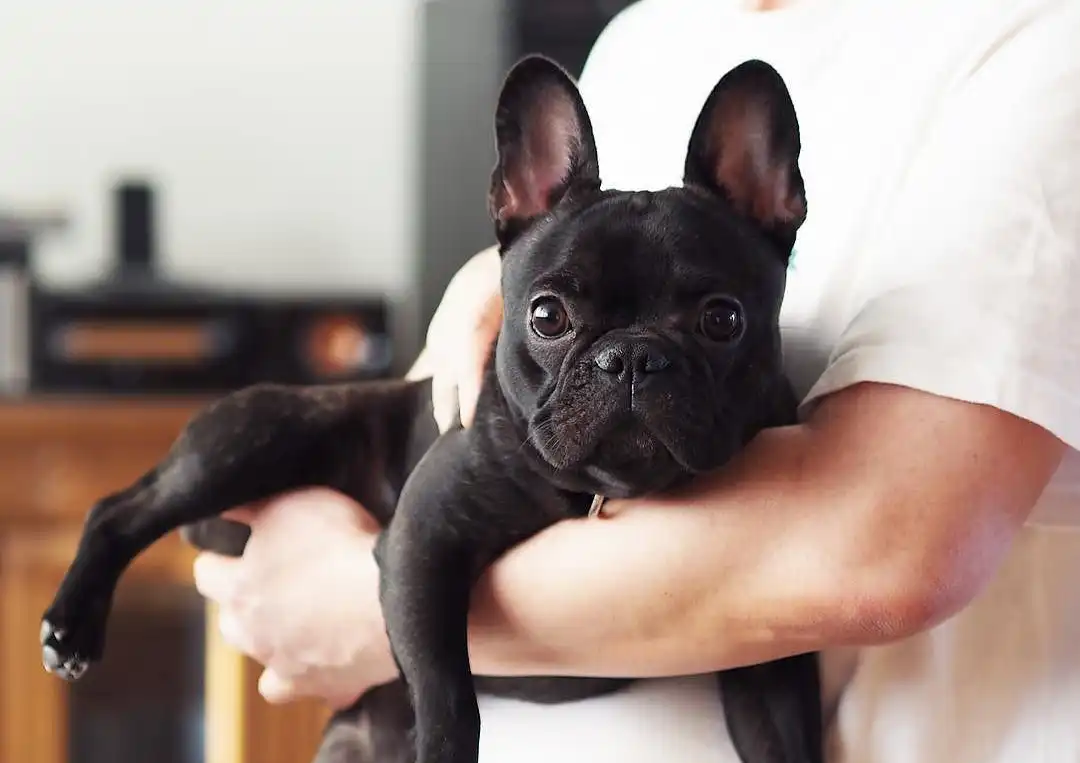
French Bulldog Drooling During Sleep
During sleep, French Bulldogs commonly exhibit drooling, especially due to their narrow nasal passages and short snouts. Their tendency to snore almost instantly upon falling asleep exacerbates this issue, as they may have difficulty breathing through their noses or keeping their mouths closed. Consequently, drooling becomes a frequent occurrence.
Surgical Considerations for Drooling and Snoring
Owners might contemplate nasal surgery to alleviate drooling and snoring. However, it’s advisable only if your Frenchie suffers from Brachycephalic Obstructive Airway Syndrome (BOAS) and experiences breathing difficulties. Avoid subjecting your dog to unnecessary surgery solely to address drooling or snoring issues.
French Bulldog Drooling While Walking
If your Frenchie drools specifically during walks and not at other times, it’s likely due to excessive slobber induced by exercise. Walking during excessively hot weather can lead to overheating, prompting uncontrollable slobbering. Limit walks to cooler times, such as mornings or evenings, especially during summer when direct heat can trigger sudden drooling due to overheating.
French Bulldog Drooling on One Side of the Mouth
While excessive drooling is common in Frenchies, drooling solely from one side of the mouth may indicate an irritant affecting that area. Try rinsing your dog’s mouth with clean water to alleviate any irritation. If the one-sided drooling persists, consult your vet for further assessment and guidance.
Insights from Fellow French Bulldog Owners
My 1st Frenchie was 100% perfect when it came to being neat & clean and no drool.
My 2nd Frenchie was a perfect pup, and then as he got older his tongue was deformed/larger than my old dog’s and now he drools because of it.
I had no idea this was going to happen when he was a puppy. He was a normal healthy dog.
Around his 1st year I noticed that his tongue sticks out to the side.
His drooling is problematic. Drinking water – it splatters everywhere. Everywhere. He drools for no reason. Long tendrils of drool. Snuggling is difficult because sometimes can drool on me – so I have to use a dishtowel on my body to prevent it.
Frequently Asked Questions (FAQs) About French Bulldog Drooling
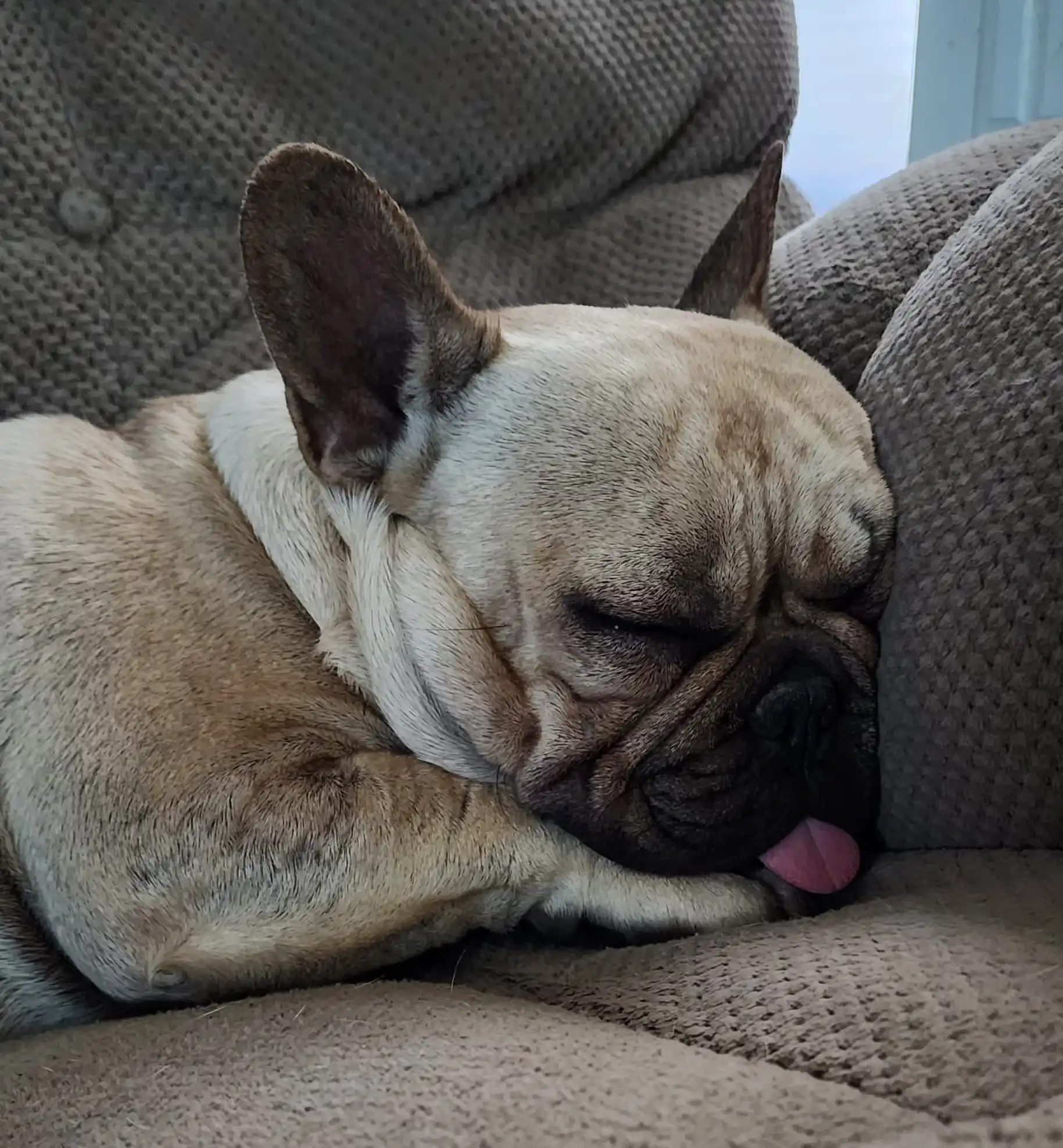
Final Words
In conclusion, understanding the reasons behind your French Bulldog’s sudden or excessive drooling is crucial for their well-being.
While occasional drooling is normal for this breed, significant changes or persistent issues may warrant attention.
By recognizing potential triggers such as stress, heat sensitivity, dental problems, or allergies, and taking appropriate measures like maintaining a comfortable environment, regular vet check-ups, and addressing underlying health concerns, you can better manage and care for your Frenchie’s drooling.
Remember, each Frenchie is unique, and what works for one may not work for another.
If you have concerns about your French Bulldog’s drooling, consulting with a qualified veterinarian can provide tailored guidance and ensure your furry companion leads a healthy, happy life

